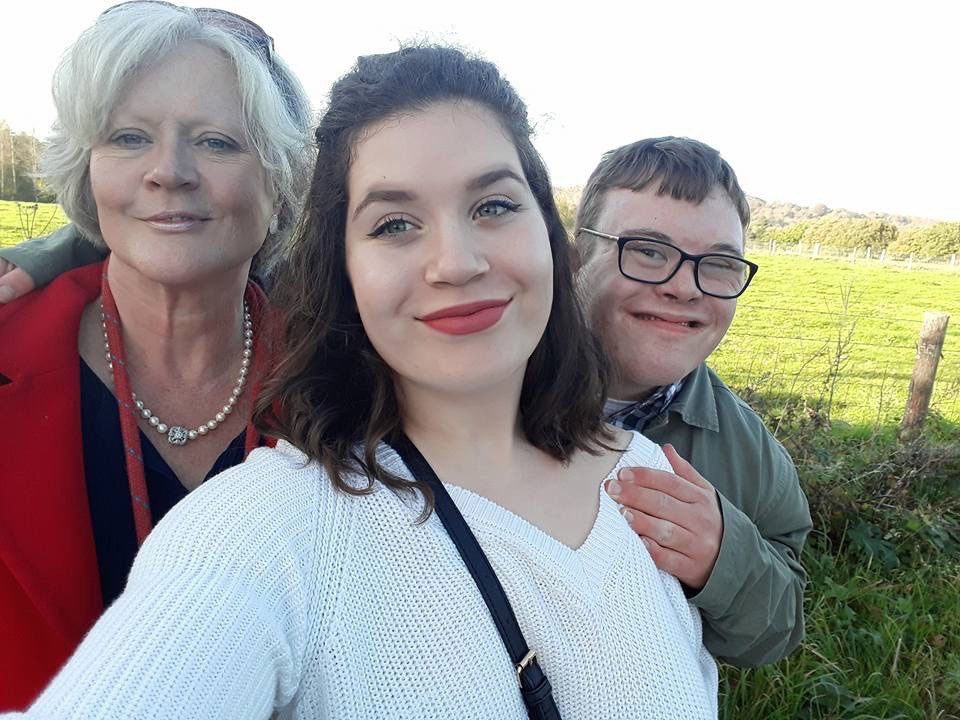Like Phillip Schofield, my mum came out in later life. I applaud her bravery
I’m ecstatic to see her happy with her wonderful girlfriend, and that she is able to live her life as her true self

Your support helps us to tell the story
From reproductive rights to climate change to Big Tech, The Independent is on the ground when the story is developing. Whether it's investigating the financials of Elon Musk's pro-Trump PAC or producing our latest documentary, 'The A Word', which shines a light on the American women fighting for reproductive rights, we know how important it is to parse out the facts from the messaging.
At such a critical moment in US history, we need reporters on the ground. Your donation allows us to keep sending journalists to speak to both sides of the story.
The Independent is trusted by Americans across the entire political spectrum. And unlike many other quality news outlets, we choose not to lock Americans out of our reporting and analysis with paywalls. We believe quality journalism should be available to everyone, paid for by those who can afford it.
Your support makes all the difference.Recollection of my childhood is filled with memories of car rides with my mother. That, and watching the Cheeky Girls perform at London Pride.
When my mum and I got in the car to fetch my brother from school, we’d chat about our days, and I’d have an opportunity to whinge about the trials and tribulations of the classroom and playground. One day when we were driving around the very busy south circular, she abruptly pulled the car to the side of the road and switched the engine off. She told me she was gay.
If I was allergic to her nerves, I’m sure I would have been in trouble. As the ever-cool 13-year-old that I was, I gave a short and sweet “okay” and a smile as a reply. I gave her a hug, and we got back on the road to get my brother. Over time, she continued to come out to friends and family. She said they were accepting “without exception”.
At the time of her coming out, my parents had been divorced for four years. We’d gotten into the groove of single-parenthood. My mum then fell in love again. The fact that her new partner was a woman did not bother me.
I’m ecstatic to see her happy with her wonderful girlfriend, and that she is able to live her life as her true self – with their three dogs. My older brother, who has Down’s Syndrome, did not receive my mum’s news so abruptly, but he happily understands the whole situation, and will spend time having said dogs fall asleep on his lap.
Discussions with my mum concerning sexuality, both mine and hers, became commonplace after her coming out.
An inevitable question that I had was how – and why – she had married a man if she was gay. Of course, in hindsight there is no easy response to this question. When she was growing up, she told me, she was not given the option of being a gay woman, or of exploring her sexuality to be comfortable and confident in her identity. She was simply taught that she was a heterosexual woman. Accepting this, she got married and had two children, and it wasn’t until she was in her fifties that she realised that such firmly held beliefs might simply be untrue.
Coming out at a later age was not a choice for my mum, nor was it a strategic plan. She came out in her fifties because, being raised in a very religious home, as well in a society where homophobia was the norm, coming out would not have been acceptable, or rather, would not have been possible.
Coming out is stereotypically regarded as an experience reserved for teenagers and young people, who are often confused as to why they don’t feel an overwhelming sense of magnetism to the opposite sex.

In reality, the realisation that one’s sexuality isn’t as assumed, or that it’s more fluid than one believed, can come at any time in life. With the likes of Phillip Schofield coming out in his late fifties, one can only hope that people are able to grow increasingly comfortable in terms of being true to themselves and their identity at all stages in their life.
In asking my mum what it was like to come out, she emphasised that sexuality is a personal and private facet of one’s identity, and should be revealed when one is comfortable to do so. She also said: “We live in a society within which we are intrinsically defined by our sexuality, and within that context it felt very scary and very liberating to come out.”
As a young teenager, I loved my mother through the experience of her coming out to our family and beginning her new life as herself. It meant I was wholly able to understand myself. I did not feel as though there were a significant amount of expectation placed upon me, and I was encouraged to embrace the fluidity and dynamism of my own identity.
It would be unrealistic to suggest that my mum’s experience of coming out to a 13-year-old in the throes of hormonal moodiness, as well as to everyone else, would have been seamless and painless. I knew it was fraught with fear and nerves, especially when we sat in the car that day. But her experience was also full of hope for the possibility of a life in which she could be true to herself and her loved ones.
I will never stop being proud of my mum for her bravery, and for being a role-model of self-acceptance: for me and for those around her.

Join our commenting forum
Join thought-provoking conversations, follow other Independent readers and see their replies
Comments